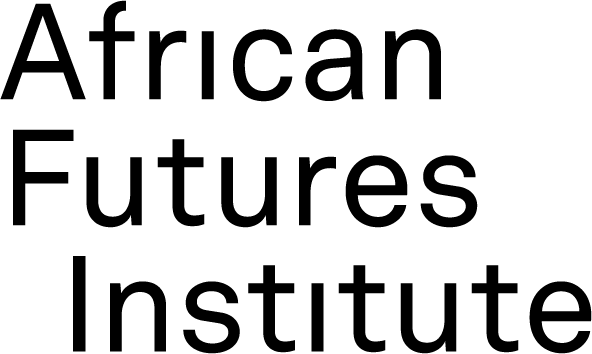Architecture in Africa’s International Relations
Architecture in Africa’s International Relations was a weeklong workshop taking place in Accra from 17 to 23 September 2022. The invited participants were scholars and practitioners working in the fields of architecture and/or international relations, with a focus on Africa. The workshop sought to put a variety of methodological, empirical and theoretical approaches to African architecture into conversation with one another so that we can begin to develop new ways of thinking about African architecture.
Buildings are often associated with domestic politics – as expressions of power or identity – but they also play an important role in international relationships. For example, architecture can be used to project a specific image of a country abroad – through airports, sports stadiums televised in international events, and in embassy buildings that act as state proxies in foreign capitals. There are also more nebulous uses of architecture in the international spread of norms and ideas, seen for example in the ways aesthetics and techniques are taken up and adapted in different contexts, carrying with them ideas of culture and expertise from one part of the world to another.
Many African capital cities are host to buildings that had been erected by foreign powers – during the colonial period or gifted as part of soft power or development projects.
This event aimed to look systematically at the role of architecture in international relations. It aimed for disciplinary and geographical breadth, seeking to put a variety of methodological, empirical and theoretical approaches to African architecture into conversation with each other, to share work and develop new ideas and approaches. A range of topics were explored, from looking at colonial architectural legacies to Chinese influences and soft power.
Architecture in Africa's International Relations (AAIR) workshop is co-sponsored by the AFI, the African State Architecture project at SOAS University of London, and the Institute of African Studies at the University of Ghana. The event took place in the form of a workshop for academics and a symposium for practitioners.
Workshop (Academics)
Accra, 17-20 September 2022
This workshop was aimed at scholars working on architecture and/or international politics in Africa. Participants had the opportunity to present draft papers in small group discussions, and were able to develop their thinking through reading others’ work, alongside architectural site visits around Accra and networking with architects and politics scholars.
This event followed a highly successful workshop on ‘Politics and Architecture’ held in Johannesburg in 2019. The AAIR workshop saw the launch of the book that emerged from the Johannesburg workshop, Architecture and Politics in Africa: Making, Living and Imagining Identities through Buildings, edited by Joanne Tomkinson, Daniel Mulugeta and Julia Gallagher (Oxford: James Currey).
The workshop’s outcome is the inaugural Reimagining African Futures compendium, an edited collection of papers developed in the workshop, aimed at raising the profile of Architecture in Africa’s International Relations. Stay tuned for more information on the release of this publication.
Workshop convenors
Dr Irene Appeaning-Addo, IAS, University of Ghana
Professor Julia Gallagher, SOAS, University of London
Dr Daniel Mulugeta, University of Birmingham
Dr Innocent Ncube
Emmanuel Ofori-Sarpong
Kuukuwa Manful
Participants
Adekunle Adeyemo, Anthony K Wako, Aude Tollo, Babere Kerata Chacha, Brook Haileselassie Damaris Wanjiku, Daniel Mulugeta, Emmanuel Kusi Ofori-Sarpong, Eyob Gebremariam, Hashim Tarmahomed, Irene Addo Appeaning, Jamilla Hamidu, Joy Onyejiako, Julia Gallagher, Kenneth Nyangena, Kristina Egbers, Kuukuwa Manful, Lesego Bantsheng, Lloyd Amoah, Lukasz Stanek, Nnamdi Elleh, Nora Naji, Sophie Kazan, Tomá Berlanda, Valerie Rumbidzai Jeche
Symposium (Practitioners)
Accra, 20-23 September 2022
The three-day symposium invited 12 early-career professionals from the African continent to critically engage with, reflect on, and reimagine African futures through transformative urbanism and architecture.
The symposium’s focus was on how African spatial practitioners can develop and implement new ways of thinking about the role of architecture in reflecting and reshaping social and political relationships. Participants pitched innovative ideas in the form of policy briefs, manifestoes and design proposals, to be developed for publication in the inaugural Reimagining African Futures compendium.
Participants
Bamusi Abdullah Nankumba, Chan Simon, Dominique Petit-Frère, Enitan Ngozi Oloto, Fiona Penina Nyadero, Hassan Mohammed Salih, Korkor Agah, Mandisa Shandu, Maxmillian Julius Chuhila, Ngonga Kapalu, Olufemi Hinson Yovo, Tolulope Ajobiewe
Symposium convenors
Dr Irene Appeaning-Addo, IAS, University of Ghana
Professor Julia Gallagher, SOAS, University of London
Dr Daniel Mulugeta, University of Birmingham
Dr Innocent Ncube
Emmanuel Ofori-Sarpong
Kuukuwa Manful
Cave_bureau: Cabage Karanja and Stella Mutegi
Kabage Karanja and Stella Mutegi founded Cave_bureau in Nairobi in 2014. The bureau comprises architects and researchers charting explorations into architecture and urbanism within nature. Their work decodes both anthropological and geological contexts of the postcolonial African city. The bureau develops systems and structures that improve the human condition, without negatively impacting the natural environment and social fabric of communities. The work navigates a return to the limitless curiosity of our early ancestors while confronting the challenges of contemporary rural and urban living. Their recent exhibitions include 17th International Architecture Exhibition, La Biennale di Venezia 2021, awarded a Special Mention for the installation Obsidian Rain; The World Around Summit, Guggenheim Museum, 2021; Cooper Hewitt Design Triennial, 2019–20; and London Festival of Architecture, 2018.
Kabage Karanja, an architect and spelunker, is a natural environment enthusiast and leads Cave_bureau’s geological and anthropological investigations into architecture and nature, orchestrating expeditions and surveys into caves within the Great Rift Valley. He is a serial sketcher and storyteller, driven to script and communicate cave-thinking in relation to both built and natural environments.
Stella Mutegi, an architect and spelunker, heads up the technical department and orchestrates the seamless coordination of ideas into built form. She takes part in all Cave_bureau expeditions, steering geological and anthropological investigations towards unique architectural outputs.


